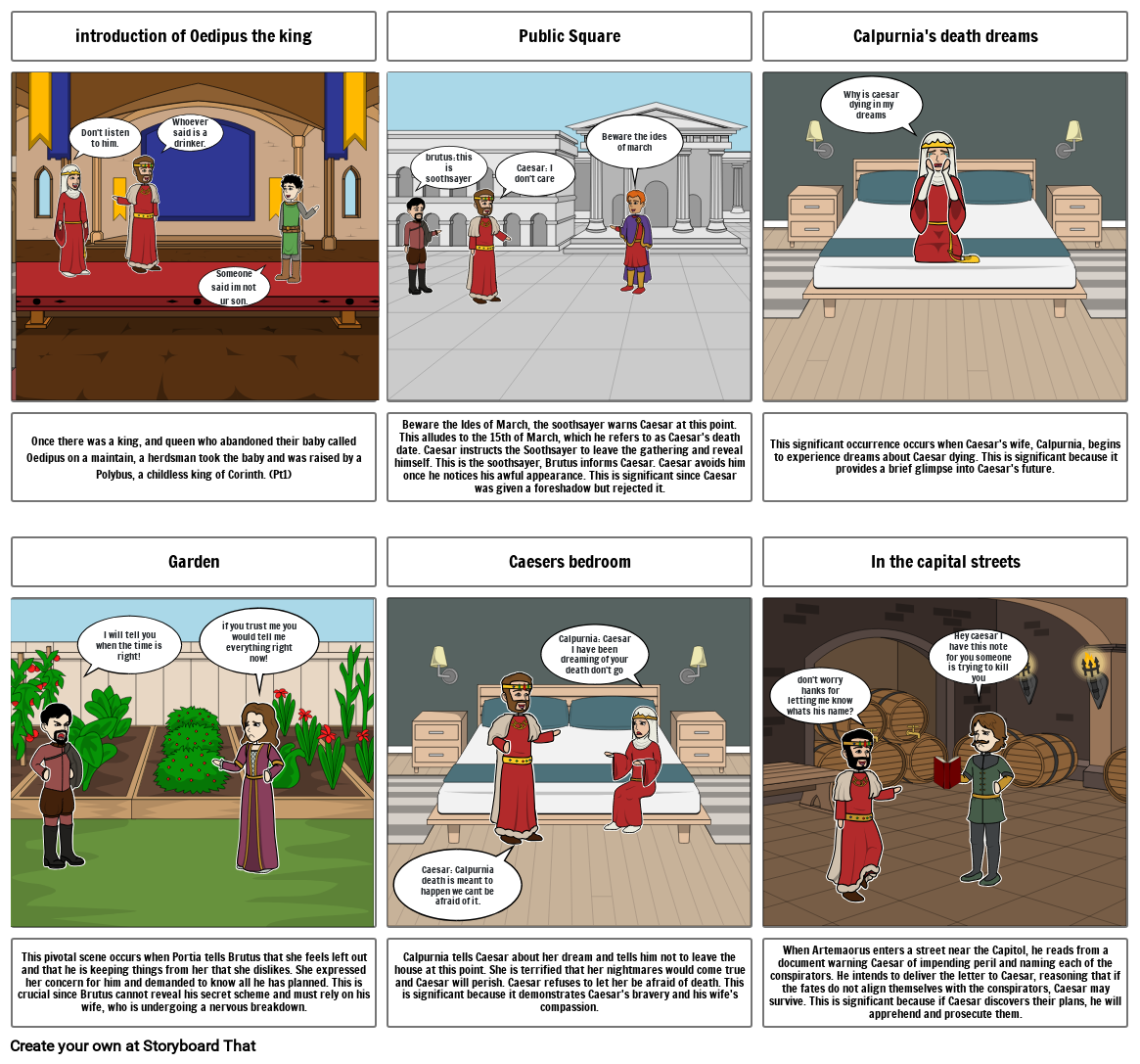Oedipus

Storyboard Tekst
- Glide: 1
- introduction of Oedipus the king
- Whoever said is a drinker.
- Don't listen to him.
- Someone said im not ur son.
- Once there was a king, and queen who abandoned their baby called Oedipus on a maintain, a herdsman took the baby and was raised by a Polybus, a childless king of Corinth. (Pt1)
- Glide: 2
- Public Square
- Beware the ides of march
- brutus:this is soothsayer
- Caesar: I don't care
- Beware the Ides of March, the soothsayer warns Caesar at this point. This alludes to the 15th of March, which he refers to as Caesar's death date. Caesar instructs the Soothsayer to leave the gathering and reveal himself. This is the soothsayer, Brutus informs Caesar. Caesar avoids him once he notices his awful appearance. This is significant since Caesar was given a foreshadow but rejected it.
- Glide: 3
- Calpurnia's death dreams
- Why is caesar dying in my dreams
- This significant occurrence occurs when Caesar's wife, Calpurnia, begins to experience dreams about Caesar dying. This is significant because it provides a brief glimpse into Caesar's future.
- Glide: 4
- Garden
- if you trust me you would tell me everything right now!
- I will tell you when the time is right!
- This pivotal scene occurs when Portia tells Brutus that she feels left out and that he is keeping things from her that she dislikes. She expressed her concern for him and demanded to know all he has planned. This is crucial since Brutus cannot reveal his secret scheme and must rely on his wife, who is undergoing a nervous breakdown.
- Glide: 5
- Caesers bedroom
- Calpurnia: Caesar I have been dreaming of your death don't go
- Caesar: Calpurnia death is meant to happen we cant be afraid of it.
- Calpurnia tells Caesar about her dream and tells him not to leave the house at this point. She is terrified that her nightmares would come true and Caesar will perish. Caesar refuses to let her be afraid of death. This is significant because it demonstrates Caesar's bravery and his wife's compassion.
- Glide: 6
- In the capital streets
- Hey caesar I have this note for you someone is trying to kill you
- don't worry hanks for letting me know whats his name?
- When Artemaorus enters a street near the Capitol, he reads from a document warning Caesar of impending peril and naming each of the conspirators. He intends to deliver the letter to Caesar, reasoning that if the fates do not align themselves with the conspirators, Caesar may survive. This is significant because if Caesar discovers their plans, he will apprehend and prosecute them.
Over 30 millioner Storyboards oprettet

